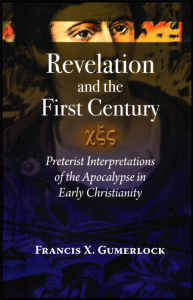NEW ARTICLES: Under the sidebar “Published Articles by the Author” are two new articles. The first is “I Will Show Wonders in the Heaven Above” published in Trinity Journal. It examines the eschatology of an eighteenth century Baptist community in Pennsylvania, called Ephrata, and how they viewed certain comets, which had appeared at that time, as signals of end time events.
The second is “Arnobius the Younger against the Predestined One” published recently in Augustinian Studies. Arnobius had many negative things to say in his Psalms commentary and Praedestinatus about a certain person whom he called pejoratively “predestined one.” This article makes a case that his predestinarian opponent was the defender of Saint Augustine, Prosper of Aquitaine, who resided in Rome at the same time as Arnobius.
NEW CONFERENCE PAPERS: Four new conference papers were posted recently on this website. These include papers on the theology of grace of Prosper of Aquitaine, the interpretation of the 144,000 in Revelation 7 & 14, an 8th century predestination controversy in Spain, and an early Christological heresy called Nestorianism.
FORTHCOMING is my review IN Augustinian Studies of the first English translation of Fulgentius of Ruspe’s “On the Truth of Predestination” in the Fathers of the Church series.
CURRENT PROJECTS: On the Latin to English translation of Tyconius’ Exposition of the Apocalypse, I have finished the translation, and am going over it one more time. David Robinson is working on the introduction and footnotes. I have also finished translations of the Apocalypse commentary in the Reference Bible, another by pseudo-Jerome, and one by Theodulph of Orleans, all from around 650-810 AD. I am going over them one more time, and then I need to write the introduction, before sending it to publication.
